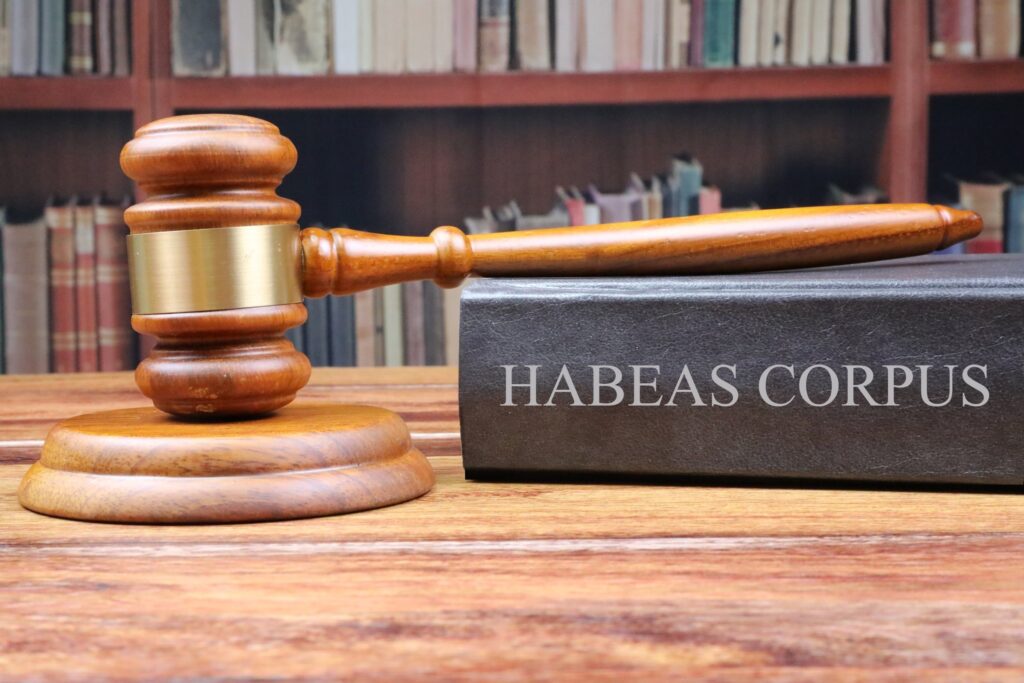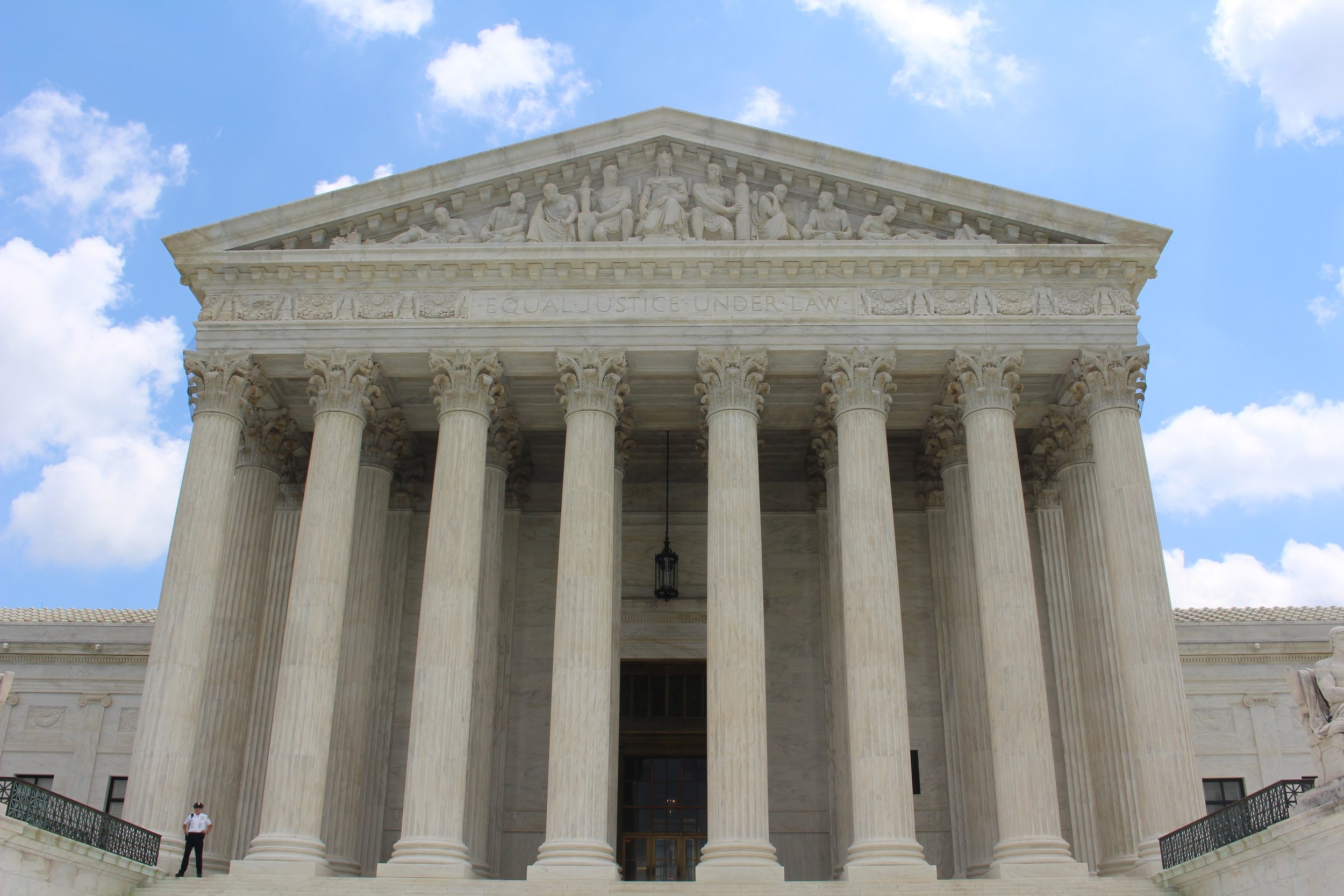The Value of Habeas Corpus in Legal Defense: Lawyer's Viewpoint
The Value of Habeas Corpus in Legal Defense: Lawyer's Viewpoint
Blog Article
Recognizing the Role of a Post-Conviction Lawyer in Seeking Justice After a Criminal Conviction
In the complex landscape of post-conviction lawful procedures, the function of a post-conviction attorney is pivotal in navigating the course to justice after a criminal sentence - louisiana federal habeas corpus attorneys. As the quest of justice extends beyond the boundaries of initial proceedings, the duty of a post-conviction lawyer emerges as a sign of hope for those seeking to rectify oppressions and recover their legal rights within the legal system.
Post-Conviction Legal representative's Investigatory Job
Post-conviction attorneys involve in thorough investigatory job to uncover brand-new evidence, step-by-step mistakes, or transgression that can possibly lead to rescinding a sentence. This investigative stage is important in the post-conviction procedure as it intends to recognize any type of neglected details or legal missteps that might have impacted the outcome of the first trial. Post-conviction lawyers look into case data, witness testimonies, and lawful documentation with a fine-tooth comb, browsing for any disparities or abnormalities that can be premises for appeal.
Via thorough examination, post-conviction attorneys aim to lose light on prospective injustices that might have occurred during the initial trial. By inspecting every aspect of the lawful procedures, post-conviction lawyers work tirelessly to discover any kind of variables that may have affected the judgment.
Crafting Appeals and Petitions
In the pursuit of justice after a conviction, competent lawyers meticulously craft appeals and petitions to existing engaging debates for the reconsideration of legal decisions. Crafting allures and petitions needs a deep understanding of the legal system, focus to information, and calculated reasoning. Post-conviction legal representatives examine test documents, recognize prospective mistakes or offenses of rights, and develop legal arguments to test the sentence or sentence.
When crafting an allure, attorneys concentrate on highlighting legal errors that may have impacted the result of the case. They research case law, laws, and lawful precedents to sustain their arguments. Petitions, on the other hand, might entail providing new evidence that was not available throughout the trial or showing adjustments in the regulation that warrant a review of the conviction.
In addition, post-conviction lawyers have to abide by strict step-by-step policies and deadlines when submitting charms and petitions. They need to offer their disagreements plainly and persuasively to persuade the court to provide alleviation to their clients. Through careful crafting of allures and applications, post-conviction lawyers strive to protect justice for individuals who have been wrongfully founded guilty or unjustly sentenced.

Seeking Post-Conviction Alleviation
Post-conviction alleviation encompasses a range of lawful mechanisms created to test the legitimacy of a sentence or sentence. Post-conviction attorneys play a crucial duty in browsing these complicated treatments, ensuring that all legal options are checked out to fix oppressions that may have happened during the test or sentencing stage.
One typical kind of post-conviction alleviation is submitting a petition for post-conviction alleviation, generally based upon cases of inefficient assistance of advice, prosecutorial misconduct, recently uncovered evidence, or constitutional offenses. These requests call for a thorough analysis of the test document, legal study, and convincing campaigning for to persuade the court to grant relief. Experienced post-conviction lawyers possess the skills and knowledge essential to determine practical legal cases, perform examinations, and existing compelling debates to protect relief for their clients. By faithfully seeking post-conviction relief, these attorneys strive to remedy miscarriages of justice and support the principles of justness and useful content due procedure in the criminal justice system (Lawyer).
Utilizing Forensic Evidence
When testing a conviction or sentence, the calculated utilization of forensic proof can be a powerful device in post-conviction lawful process. Forensic evidence encompasses a large array of scientific techniques used to explore criminal activities and develop facts in court. Post-conviction attorneys can leverage forensic evidence to test the legitimacy of convictions by offering brand-new scientific findings that were not readily available during the original test.

Involving in Sentence Alterations
Post-conviction lawyers may explore the opportunity of sentence modifications as a lawful method to address disproportionate or unjust sentences passed on in criminal instances. Sentence modifications include looking for adjustments to the regards to a defendant's sentence after a sentence has taken area. These adjustments can consist of reducing the length of a sentence, altering the kind of penalty imposed, or exploring different sentencing options.
Post-conviction legal representatives can go after sentence alterations with numerous lawful mechanisms, such as submitting activities for sentence reduction, appealing for thoughtful launch, or discussing appeal deals for decreased sentences. They should carefully assess the situations of the instance, evaluate the legal grounds for seeking an adjustment, and present engaging disagreements to the court supporting the need for a modified sentence.
Involving in sentence alterations requires a thorough understanding of criminal law, punishing guidelines, and the certain procedures associated with looking for post-conviction relief. Post-conviction attorneys play a critical function in promoting for reasonable and simply outcomes by challenging sentences that are unduly severe or do not line up with the concepts of justice.
Conclusion
To conclude, the role of a post-conviction attorney is essential in looking for justice after a criminal sentence. Through investigative work, crafting allures and petitions, going after post-conviction alleviation, utilizing forensic evidence, and participating in sentence adjustments, these lawful experts play an essential duty in advocating for their customers and making certain that their legal rights are promoted within the criminal justice system. Their devotion and know-how are crucial in browsing the intricacies of post-conviction proceedings and accomplishing a fair outcome for individuals facing criminal convictions.
Report this page